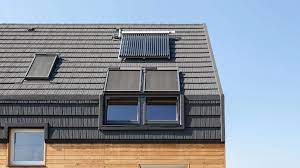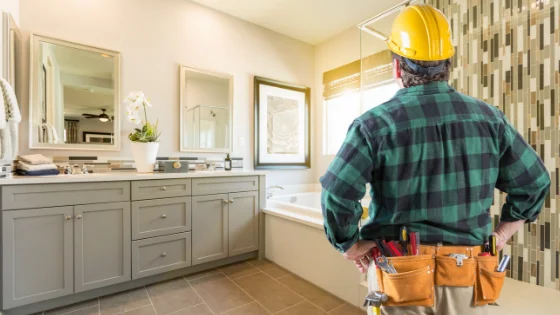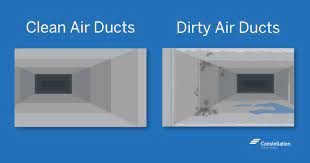Choosing the right HVAC (Heating, Ventilation, and Air Conditioning) system for your home is a crucial choice that can have a substantial effect on your comfort, energy efficiency, and indoor air quality. It can be difficult to determine which system best meets your requirements due to the market’s abundance of alternatives. Size of the home, climate, budget, and personal preferences all play a role in determining the best option. In this blog, we will discuss the most important factors to consider when selecting a heating, ventilation, and air conditioning (HVAC) system for your home, enabling you to make an informed decision that meets your specific needs.
1. Determine the Heating and Cooling Needs of Your Home
Assessing your home’s heating and cooling needs is the first step in choosing the proper HVAC system. This is influenced by the size and layout of your home, the level of insulation, the number of occupants, and the local climate conditions. A professional HVAC technician can conduct a load calculation to determine your home’s precise heating and cooling needs.
2. Energy Performance and SEER Rating
Energy efficiency is a crucial factor to consider when selecting an HVAC system. Consider purchasing systems with a high Seasonal Energy Efficiency Ratio (SEER) rating. The greater the SEER rating, the more energy-efficient the system, which can result in lower utility bills and a smaller environmental footprint. The minimum SEER rating required for new HVAC installations in many regions is 13. However, for greater energy savings, SEER ratings of 16 or higher are recommended.
3. Options for Heating and Cooling
Depending on the climate and your heating needs, you may require a system with both cooling and heating capabilities. Optional considerations include:
- Furnace and Air Conditioner: This combination of a furnace and air conditioner is a popular option in regions with distinct seasons, as it features separate heating and cooling units.
- Heat Pump: Ideal for temperate climates, heat pumps provide both heating and cooling by transferring heat between the interior and exterior.
- Mini-Split Ductless System: Ideal for climate control in individual rooms, ductless mini-split systems are a flexible option that do not require ductwork.
4. Aspects of Indoor Air Quality to Consider
The importance of indoor air quality for a healthy living environment. Consider HVAC systems with sophisticated air filtration and purification capabilities to remove allergens, dust, and other air pollutants. Additionally, humidity-controlling systems can help maintain optimal indoor humidity levels for comfort and health.
5. Fuel Source
The heating system’s fuel source is an essential consideration. Common alternatives include:
- Electricity: Heat pumps and air conditioners powered by electricity are widely utilized due to their energy efficiency and versatility.
- Natural Gas: Natural gas furnaces are popular due to their affordability and rapid heating capabilities.
- Oil: In areas where natural gas is not readily available, oil furnaces are a viable option.
6. Budget and Long-Term Expenses
Your budget plays an important role in determining the HVAC system that best meets your requirements. Consider not only the initial purchase and installation costs, but also the ongoing operating and maintenance costs. Although high-efficiency systems may have a higher initial cost, they can result in significant energy savings over the life of the system.
7. Zoning and Intelligent Thermostats
Zoning allows you to independently control the temperature in distinct areas or zones of your home. This feature is especially useful for large homes and households with diverse temperature preferences. Thermostats with advanced programmability and remote control capabilities offer additional convenience and energy savings.
8. Maintenance and Warranty
Compare the warranties provided by various HVAC manufacturers. A comprehensive warranty can provide peace of mind by safeguarding your investment and ensuring that any potential repairs or replacements are covered. Inquire further about the recommended maintenance schedule and associated costs for keeping the system in excellent condition.
9. Energy Conservation Incentives
Some regions offer rebates or incentives for the installation of high-efficiency HVAC systems. Check with your local utility company or government to see if there are any incentives available to help offset the cost of upgrading to a more energy-efficient system.
10. Specialist Installation
Professional installation cannot be overstated in importance. The installation of your HVAC system is crucial for its efficient and secure operation. A qualified heating and air company Hendersonville technician will ensure that the system is properly sized, installed, and calibrated for peak performance.
Conclusion
The HVAC system you choose for your home has a significant impact on your comfort, energy efficiency, and indoor air quality. Consider your home’s heating and cooling requirements, energy efficiency ratings, heating and cooling options, indoor air quality features, fuel source, budget, zoning capabilities, and warranties when making a choice. For the best results, you should also take advantage of energy efficiency incentives and have your system professionally installed, click here to learn more.

















Leave a Reply